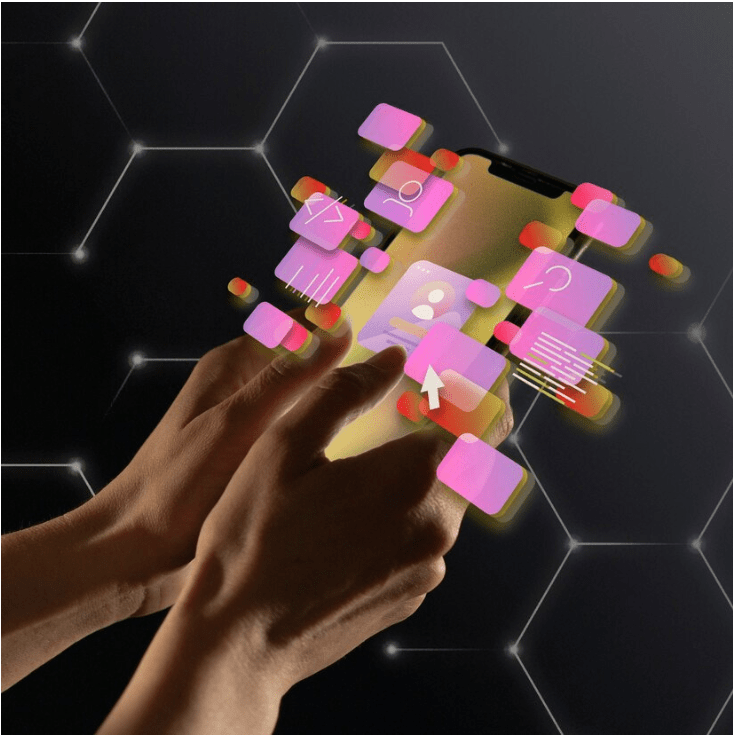Social media algorithms have fundamentally altered the way we interact in the digital age. Designed to deliver personalized content by analyzing our online behaviors, these algorithms influence what we see, who we connect with, and how we engage. While their precision has enhanced our ability to discover new content and communities, they have also reshaped communication patterns, fostered polarization, and even impacted our mental well-being. This blog dives deep into how social media algorithms have changed our interactions, supported by statistics and insights into their broader implications.
1. What Are Social Media Algorithms and How Do They Work?
Social media algorithms are complex systems that sort and prioritize content based on user behavior. By analyzing actions such as likes, shares, comments, and watch times, these algorithms predict what content is most relevant for individual users. This prediction ensures that the most engaging posts appear at the top of your feed, keeping users engaged for longer.
For example, TikTok’s For You page is a prime illustration of algorithmic precision. By tracking user engagement within minutes of joining the platform, TikTok can curate a personalized feed tailored to specific interests. Similarly, Facebook focuses on promoting posts from friends, groups, or advertisers that align with user preferences, reducing the organic reach of other content to just 5.2%.

Key Functions of Social Media Algorithms
- Personalization: Tailoring feeds to individual preferences.
- Engagement maximization: keeping users on platforms longer.
- Advertising Optimization: Boosting ad effectiveness through targeted content.
2. The Role of Algorithms in Personalizing Content
One of the most significant contributions of algorithms is content personalization. Algorithms sort through billions of posts daily to ensure users see what’s most relevant to them. This personalization allows users to discover niche content, engage with global trends, and connect with like-minded individuals.
However, personalization comes with trade-offs. While it ensures relevance, it can inadvertently filter out diverse perspectives, limiting exposure to differing viewpoints. For instance, while you might enjoy seeing content related to your hobbies, this tailored experience can reinforce existing preferences and biases.
3. Echo Chambers and the Polarization of Perspectives
Algorithms tend to amplify content similar to what users have already engaged with, leading to the creation of “echo chambers.” In these environments, users are repeatedly exposed to ideas that align with their beliefs while opposing views are suppressed.
The Impact of Echo Chambers:
- Reduced Exposure to Diverse Ideas: algorithms prioritize familiar content over differing perspectives.
- Increased Polarization: People become more entrenched in their views, contributing to societal divides.
A Pew Research Center study found that 64% of people believe social media has a mostly negative effect on societal discourse, with echo chambers being a key factor. By narrowing our digital exposure, algorithms have changed the way we engage in debates and discussions.
4. Parasocial Relationships: The New Way We Connect
The rise of influencer culture, driven by algorithmic promotion, has led to a new form of connection known as parasocial relationships. These are one-sided relationships where users feel emotionally connected to influencers or celebrities who are unaware of their existence.
According to studies, 55% of Gen Z users report feeling a sense of “friendship” with influencers they follow. While this can provide a sense of belonging, it also raises concerns about the blurred lines between real-life relationships and digital connections. These parasocial relationships are often curated by influencers to maintain engagement, making them less authentic than they appear.

5. The Decline of Attention Spans
Algorithms prioritize content that grabs attention quickly, leading to the proliferation of short-form content such as TikTok videos and Instagram reels. While these bite-sized formats are entertaining, they have contributed to a decline in attention spans.
A Microsoft study revealed that the average human attention span dropped from 12 seconds in 2000 to just 8 seconds in 2023. This shift has not only affected how we consume information but also how we communicate, favoring quick exchanges over deeper, more meaningful interactions.
6. Positive Impacts of Social Media Algorithms
Despite their drawbacks, algorithms also offer significant benefits:
- Content Discovery: Algorithms help users explore topics, trends, and communities of interest.
- Enhanced Connectivity: Platforms connect users with like-minded individuals worldwide.
- Opportunities for Creators: Algorithms enable content creators to reach their target audiences effectively.
Businesses and creators have especially benefited from algorithm-driven platforms. With 91% of brands using social media for marketing, understanding how to optimize content for algorithms has become essential for success.
The addictive nature of algorithms has led to increased screen time, with the average person spending 2 hours and 31 minutes daily on social platforms. This overuse has been linked to negative mental health outcomes, including anxiety, depression, and feelings of inadequacy.
Instagram, for example, prioritizes highly curated content, leading 62% of users to feel worse about their appearance after browsing the platform. Additionally, algorithms often amplify sensationalist posts to boost engagement, causing misinformation to spread six times faster than factual content.
7. Our Practical Tips for Navigating Social Media Algorithms
To make the most of social media while minimizing its downsides, consider these tips:
- Be Selective with Engagement: Interact thoughtfully to influence the content you see.
- Diversify Your Feed: Follow accounts with differing perspectives to counteract echo chambers.
- Limit Screen Time: Use tools like “Screen Time” or “Digital Wellbeing” to manage usage.
- Engage with credible sources: Verify information before sharing to combat misinformation.
Social media algorithms have reshaped how we interact, offering both benefits and challenges. While they enable personalized experiences and broaden access to content, they also raise concerns about mental health, polarization, and misinformation. By staying informed and mindful of our online behavior, we can harness the advantages of algorithms while mitigating their drawbacks.
Don’t miss out on the latest updates, insights, and tips! Follow us on social media and be part of our growing community.




